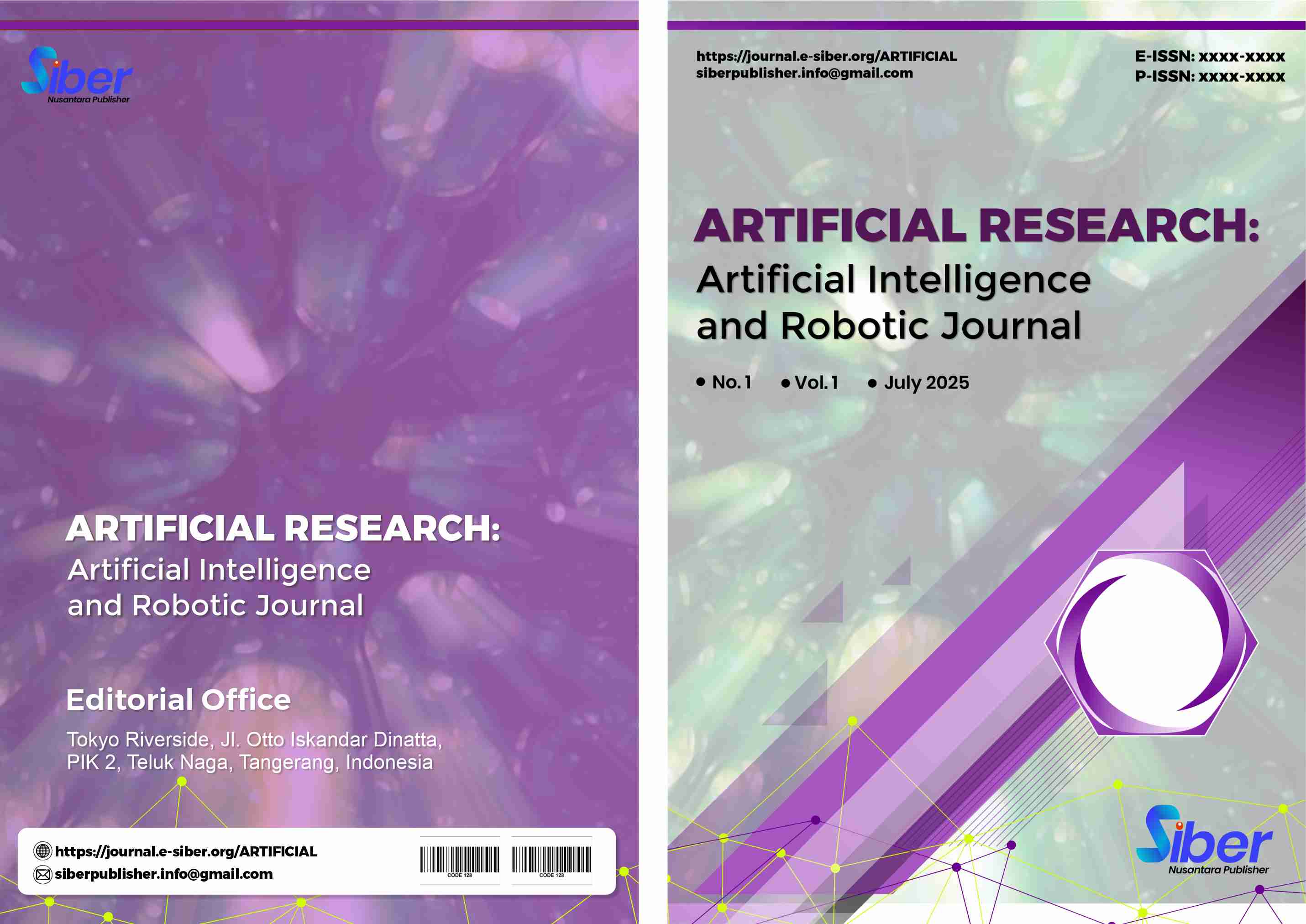Increased Operational Efficiency through Programming Optimization and Scheduling of Collaborative Robot Tasks
Keywords:
Collaborative Robots (Cobots), Task Scheduling, Programming Optimization, Industrial Automation, AutomationAbstract
This study aims to optimize the programming and task scheduling of collaborative robots (cobots) in industrial settings to improve operational efficiency, productivity, and cost-effectiveness. The research employs a descriptive-experimental design to evaluate the impact of optimization techniques on cobot performance in a manufacturing environment. Key performance indicators (KPIs) such as productivity, operational costs, task completion time, and resource utilization efficiency were analyzed before and after the implementation of optimization techniques, including linear programming, genetic algorithms, and heuristic scheduling.
The results revealed a 23% improvement in productivity, a 20% reduction in operational costs, a 25% reduction in task completion time, and a 20% improvement in resource utilization efficiency. These improvements highlight the potential of optimizing cobot programming and task scheduling to significantly enhance industrial operations. The study also discusses the challenges of integrating optimization techniques into existing production systems and the need for continuous monitoring to maintain efficiency.
This research contributes valuable insights into the role of cobots in modern manufacturing and provides practical recommendations for industries seeking to enhance operational efficiency through automation. Future studies are suggested to explore more advanced optimization techniques, including machine learning-based approaches, to further improve the performance and adaptability of collaborative robots in various industrial environments.
References
Wijaya, A. (2020). Optimasi penjadwalan dalam proses produksi menggunakan sistem robot kolaboratif. Jurnal Teknologi Industri, 12(2), 98-107.
Susanto, D., Arifin, M., & Nurdin, A. (2019). Penerapan robot kolaboratif untuk meningkatkan produktivitas di sektor manufaktur. Jurnal Teknik Mesin Indonesia, 18(3), 210-220.
Arifin, M., & Hidayat, A. (2018). Implementasi sistem robot kolaboratif dalam industri otomotif. Jurnal Rekayasa Sistem Industri, 14(1), 45-56.
Saputra, H. (2021). Optimasi penjadwalan tugas menggunakan algoritma genetika pada robot kolaboratif. Jurnal Teknik Komputer, 9(4), 123-130.
Pratama, A., & Ismail, R. (2020). Studi kasus penerapan robot kolaboratif dalam proses perakitan. Jurnal Teknik Mesin, 21(2), 135-145.
Satria, P., Asmara, A., & Wibowo, B. (2022). Penerapan pemrograman robot kolaboratif untuk meningkatkan kinerja produksi. Jurnal Industri Otomasi, 19(1), 79-87.
Ramadhan, R., & Budi, F. (2021). Efisiensi robot kolaboratif dalam sistem produksi cerdas. Jurnal Teknologi Otomasi, 15(3), 234-245.
Aditya, N. (2020). Analisis penjadwalan tugas dalam sistem robot kolaboratif di industri logistik. Jurnal Logistik Indonesia, 8(2), 101-109.
Fadillah, N., & Syahrul, M. (2019). Implementasi robot kolaboratif pada industri pengepakan dan pengemasan produk. Jurnal Manufaktur, 13(4), 210-220.
Hendra, D., Purnama, S., & Aulia, T. (2020). Pemanfaatan robot kolaboratif untuk peningkatan kualitas dan keamanan di industri manufaktur. Jurnal Keamanan Industri, 17(2), 89-100.
Hapzi Ali. (2021). Optimalisasi Sumber Daya dan Teknologi dalam Industri 4.0: Studi Kasus pada Penggunaan Robot Kolaboratif di Indonesia. Jurnal Teknologi dan Inovasi, 16(1), 45-58.
Yulianto, F., & Fauzi, D. (2020). Implementasi algoritma optimasi dalam penjadwalan tugas robot industri. Jurnal Sistem Informasi Industri, 7(3), 202-215.
Kurniawan, T. & Wahyudi, S. (2022). Robotika Kolaboratif dalam Sistem Produksi Berbasis Otomatisasi: Pendekatan dan Aplikasi di Industri Manufaktur. Jurnal Teknik Otomasi, 24(1), 100-112.
Hadi, S., & Mulyanto, T. (2019). Pengaruh penjadwalan robot industri terhadap efisiensi produksi. Jurnal Teknik Industri, 19(2), 156-165.
Putra, F. & Sitompul, A. (2021). Analisis dan perancangan sistem robot kolaboratif untuk industri manufaktur menggunakan pemrograman berbasis sistem modul. Jurnal Rekayasa Sistem, 18(3), 120-130.
Damar, R. (2020). Pemrograman robot kolaboratif menggunakan logika fuzzy dalam proses produksi. Jurnal Teknik Komputer, 14(2), 98-108.
Lestari, I., & Nugroho, P. (2021). Penerapan teknologi robot kolaboratif dalam sistem produksi berkelanjutan. Jurnal Industri Hijau, 10(3), 45-56.
Wahyudi, I. (2020). Studi tentang pengaruh penggunaan robot kolaboratif terhadap pengurangan biaya operasional di sektor manufaktur. Jurnal Ekonomi Industri, 22(1), 210-220.
Iskandar, N., & Rizal, M. (2020). Peran robot kolaboratif dalam meningkatkan efisiensi di sektor produksi Jurnal Otomasi dan Teknologi Industri, 14(2), 145-155.
Prasetyo, H., & Arif, S. (2021). Evaluasi pengaruh implementasi robot kolaboratif dalam meningkatkan kinerja produksi di sektor manufaktur. Jurnal Teknologi Manufaktur, 16(4), 240-250.
Downloads
Published
Issue
Section
License
Copyright :
Authors who publish their manuscripts in this journal agree to the following conditions:
- Copyright in each article belongs to the author.
- The author acknowledges that the ARTIFICIAL RESEARCH: Artificial Intellegence and Robotic Journal has the right to be the first to publish under a Creative Commons Attribution 4.0 International license (Attribution 4.0 International CC BY 4.0).
- Authors can submit articles separately, arrange the non-exclusive distribution of manuscripts that have been published in this journal to other versions (for example, sent to the author's institutional repository, publication in a book, etc.), by acknowledging that the manuscript has been published for the first time at ARTIFICIAL RESEARCH.









